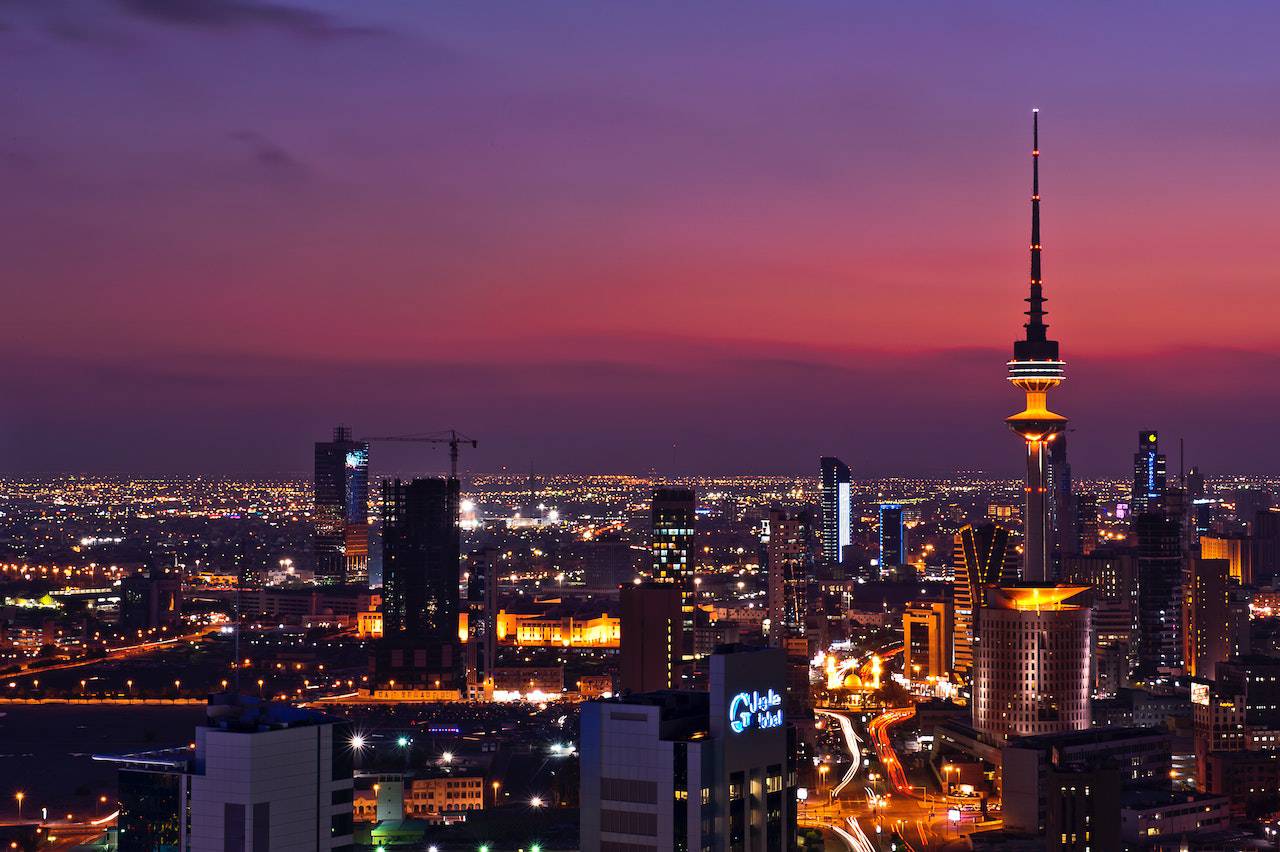Kuwait, which is situated at the head of the Persian Gulf, has long been renowned for its oil wealth. Iraq, Iran, and Saudi Arabia are among its neighbors. Kuwait City, the nation's capital, is renowned for its cutting-edge design. Kuwait is a true blend of modernity and the past, with both contemporary skyscrapers and ancient, exquisitely constructed mosques.
There are many malls in Kuwait where you can go shopping. 360 Mall, The Avenues, and Marina Mall, all in Kuwait City, are a few of the greatest. You can also shop at souks to stock up on regional goods like cloth, spices, food, and perfumes. In these souks, you can lose yourself for hours while taking in the culture and the commotion of everyone selling their things.
The Kuwait Jazz Festival, Ramadan, Eid al-Adha, Hala February, National Day, Liberation Day, Eid al-Fitr, and the Film Festival are the most well-known celebrations in Kuwait.
Avoid eating in public if you are visiting during Ramadan because you might potentially get arrested for it. Tipping is entirely optional. Avoid wearing tight clothing since it is not acceptable.
This nation's food is a delicious fusion of flavors from the Middle East, Arabia, India, and Persia. Large amounts of seafood are consumed, with fish being a favorite among the populace. Several Kuwaiti meals include grilled or fried fish.
Here, khubz, an Iranian flatbread, is also consumed. Machboos is a typical Kuwaiti meal made with spices, basmati chawal, mutton, or chicken. Suleimani tea is the preferred beverage among the populace. Additionally, they consume milk, yogurt, Leben, and some kinds of sherbet.
Generally speaking, when people think about Kuwait, they may think of oil. But if you travel to this Western Asian country and discover it, you'll fall in love with its stunning architecture, authentic Arabian hospitality, wide desert, serene beaches, and mouthwatering cuisine. What's best? The country known as the oasis of serenity is much quieter since it is less commercialized than other Middle Eastern nations.
Situated at the edge of the Persian Gulf, Kuwait has a perplexing history that will leave one fascinated. The first humans to settle in Kuwait date back over 8,000 BC, during the Neolithic period.
Kuwait has seen influences and settlements during various pre-historic time periods including Mesopotamians, Ubaidans, Kazma and so on.
During the 16th century, Portuguese invaded Kuwait and established Kuwait City as a fishing village. Even during the Portuguese rule, sheikhdom was followed in Kuwait with a prominent family of Bani Khalid clan. Their sovereignty helped turn Kuwait into a profitable commercial hub. Over the centuries, Kuwait continued to grow and prosper, becoming a bustling hub of trade and commerce. The nation's strategic location made it a key player in the spice and silk trade routes that connected Europe, Africa, and Asia.
The successive ruling family of Al Sabahs had a strategic relationship with the East India Company of the Great Britain. This association in the early days shielded Kuwait against Ottoman empire and then after the Anglo-Ottoman Convention of 1913 dissolved the sheikhdom in Kuwait.
Trade was the primary occupation in Kuwait till the discovery of oil in 1936. The growth after that has been phenomenal and has attracted many expats to this tiny nation. Kuwait became independant in June 1961 from the British protectorate and established its constitution.
The top tourist attractions in Kuwait in 2023 are:
- Kuwait Towers
- The Grand Mosque
- The Kuwait National Museum
- Souq Al-Mubarakiya
- Al Shaheed Park
- Failaka Island
- The Liberation Tower
The best time to visit Kuwait is from November to February, when the weather is mild and comfortable.
The currency of Kuwait is the Kuwaiti Dinar (KWD).
Located by the Persian Gulf, the up-scale, Salmiya is the prettiest town in Kuwait.
You need 3 days to visit Kuwait.
- Visit the iconic landmarks with a private guide.
- Wander through the souqs to explore the shopping scene.
- Kuwait’s beaches are the ideal spots to relax and unwind.
- Kuwait’s islands and museums will let you explore the history and the natural beauty.
 Best time to visit
Best time to visit Language Spoken
Language Spoken Weather
Weather